-
 Univers
Univers
-
 Ebooks
Ebooks
-
 Livres audio
Livres audio
-
 Presse
Presse
-
 Podcasts
Podcasts
-
 BD
BD
-
 Documents
Documents
-
- Cours
- Révisions
- Ressources pédagogiques
- Sciences de l’éducation
- Manuels scolaires
- Langues
- Travaux de classe
- Annales de BEP
- Etudes supérieures
- Maternelle et primaire
- Fiches de lecture
- Orientation scolaire
- Méthodologie
- Corrigés de devoir
- Annales d’examens et concours
- Annales du bac
- Annales du brevet
- Rapports de stage
La lecture à portée de main
The Night-Born , livre ebook
80
pages
English
Ebooks
2021
Écrit par
Jack London
Publié par
Mint Editions
Vous pourrez modifier la taille du texte de cet ouvrage
Obtenez un accès à la bibliothèque pour le consulter en ligne En savoir plus
Découvre YouScribe en t'inscrivant gratuitement
Découvre YouScribe en t'inscrivant gratuitement
80
pages
English
Ebook
2021
Vous pourrez modifier la taille du texte de cet ouvrage
Obtenez un accès à la bibliothèque pour le consulter en ligne En savoir plus
Publié par
Date de parution
19 janvier 2021
Nombre de lectures
0
EAN13
9781513275253
Langue
English
Poids de l'ouvrage
2 Mo
Written by the beloved author, Jack London, The Night-Born is a compelling collection of ten short works of fiction, each featuring an interesting protagonist. The Madness of John Harned is narrated by a wealthy Ecuadorian man who attends a bull fight with his cousin, Maria, and the American man who is in love with her, John. While they watch the event, Maria and John have a debate that eventually leads to John to make an unpredictable and unfortunate choice. When the World was Young follows the aftermath of the meeting of two men, after a thief stumbles upon a strange barbaric man while trying to rob a countryside estate. Portraying a thrilling story of crime, To Kill a Man tests preconceived biases and assumptions while depicting a conversation between a woman and the man who had attempted to rob her house. The Benefit of the Doubt invokes melancholy feelings as it follows a man who returns to his hometown to find it in a state of decline. Featuring adventure and mystery, Winged Blackmail depicts a high-profile financier struggling to track down the person who is responsible for sending him blackmail letters via a courier pigeon. Finally, the title story of The Night-Born revolves around a strange woman and two retired gold-prospectors who feel their old career has stunted their lives despite the considerable wealth it earned them.
With reoccurring themes of human nature, justice, and the impermanent happiness of money, Jack London’s The Night-Born is as thought-provoking as it is entertaining. With stories set in the 20th century and accompanied by intellectual social commentary, The Night-Born grant readers a privileged perspective on the culture and societal norms of the 1900s. Meanwhile, modern readers can also relate to the human struggles that have remained to be present in contemporary society.
This edition of The Night-Born by the highly esteemed author, Jack London, is now presented in an easy-to-read font and features a striking new cover design, making it both modern and accessible.
Publié par
Date de parution
19 janvier 2021
Nombre de lectures
0
EAN13
9781513275253
Langue
English
Poids de l'ouvrage
2 Mo
The Night-Born
Jack London
The Night-Born was first published in 1911.
This edition published by Mint Editions 2021.
ISBN 9781513270258 | E-ISBN 9781513275253
Published by Mint Editions®
minteditionbooks .com
Publishing Director: Jennifer Newens
Design & Production: Rachel Lopez Metzger
Typesetting: Westchester Publishing Services
C ONTENTS T HE N IGHT- B ORN T HE M ADNESS OF J OHN H ARNED W HEN THE W ORLD W AS Y OUNG T HE B ENEFIT OF THE D OUBT W INGED B LACKMAIL B UNCHES OF K NUCKLES W AR U NDER THE D ECK A WNINGS T O K ILL A M AN T HE M EXICAN
T HE N IGHT- B ORN
I t was in the old Alta-Inyo Club—a warm night for San Francisco—and through the open windows, hushed and far, came the brawl of the streets. The talk had led on from the Graft Prosecution and the latest signs that the town was to be run wide open, down through all the grotesque sordidness and rottenness of man-hate and man-meanness, until the name of O’Brien was mentioned—O’Brien, the promising young pugilist who had been killed in the prize-ring the night before. At once the air had seemed to freshen. O’Brien had been a clean-living young man with ideals. He neither drank, smoked, nor swore, and his had been the body of a beautiful young god. He had even carried his prayer-book to the ringside. They found it in his coat pocket in the dressing-room… afterward.
Here was Youth, clean and wholesome, unsullied—the thing of glory and wonder for men to conjure with… after it has been lost to them and they have turned middle-aged. And so well did we conjure, that Romance came and for an hour led us far from the man-city and its snarling roar. Bardwell, in a way, started it by quoting from Thoreau; but it was old Trefethan, bald-headed and dewlapped, who took up the quotation and for the hour to come was romance incarnate. At first we wondered how many Scotches he had consumed since dinner, but very soon all that was forgotten.
“It was in 1898—I was thirty-five then,” he said. “Yes, I know you are adding it up. You’re right. I’m forty-seven now; look ten years more; and the doctors say—damn the doctors anyway!”
He lifted the long glass to his lips and sipped it slowly to soothe away his irritation.
“But I was young… once. I was young twelve years ago, and I had hair on top of my head, and my stomach was lean as a runner’s, and the longest day was none too long for me. I was a husky back there in ’98. You remember me, Milner. You knew me then. Wasn’t I a pretty good bit of all right?”
Milner nodded and agreed. Like Trefethan, he was another mining engineer who had cleaned up a fortune in the Klondike.
“You certainly were, old man,” Milner said. “I’ll never forget when you cleaned out those lumberjacks in the M. & M. that night that little newspaper man started the row. Slavin was in the country at the time,”—this to us—“and his manager wanted to get up a match with Trefethan.”
“Well, look at me now,” Trefethan commanded angrily. “That’s what the Goldstead did to me—God knows how many millions, but nothing left in my soul… nor in my veins. The good red blood is gone. I am a jellyfish, a huge, gross mass of oscillating protoplasm, a—a…”
But language failed him, and he drew solace from the long glass.
“Women looked at me then; and turned their heads to look a second time. Strange that I never married. But the girl. That’s what I started to tell you about. I met her a thousand miles from anywhere, and then some. And she quoted to me those very words of Thoreau that Bardwell quoted a moment ago—the ones about the day-born gods and the night-born.”
“It was after I had made my locations on Goldstead—and didn’t know what a treasure-pot that that trip creek was going to prove—that I made that trip east over the Rockies, angling across to the Great Up North there the Rockies are something more than a back-bone. They are a boundary, a dividing line, a wall impregnable and unscalable. There is no intercourse across them, though, on occasion, from the early days, wandering trappers have crossed them, though more were lost by the way than ever came through. And that was precisely why I tackled the job. It was a traverse any man would be proud to make. I am prouder of it right now than anything else I have ever done.
“It is an unknown land. Great stretches of it have never been explored. There are big valleys there where the white man has never set foot, and Indian tribes as primitive as ten thousand years… almost, for they have had some contact with the whites. Parties of them come out once in a while to trade, and that is all. Even the Hudson Bay Company failed to find them and farm them.
“And now the girl. I was coming up a stream—you’d call it a river in California—uncharted—and unnamed. It was a noble valley, now shut in by high canyon walls, and again opening out into beautiful stretches, wide and long, with pasture shoulder-high in the bottoms, meadows dotted with flowers, and with clumps of timberspruce—virgin and magnificent. The dogs were packing on their backs, and were sore-footed and played out; while I was looking for any bunch of Indians to get sleds and drivers from and go on with the first snow. It was late fall, but the way those flowers persisted surprised me. I was supposed to be in sub-arctic America, and high up among the buttresses of the Rockies, and yet there was that everlasting spread of flowers. Some day the white settlers will be in there and growing wheat down all that valley.
“And then I lifted a smoke, and heard the barking of the dogs—Indian dogs—and came into camp. There must have been five hundred of them, proper Indians at that, and I could see by the jerking-frames that the fall hunting had been good. And then I met her—Lucy. That was her name. Sign language—that was all we could talk with, till they led me to a big fly—you know, half a tent, open on the one side where a campfire burned. It was all of moose-skins, this fly—moose-skins, smoke-cured, hand-rubbed, and golden-brown. Under it everything was neat and orderly as no Indian camp ever was. The bed was laid on fresh spruce boughs. There were furs galore, and on top of all was a robe of swanskins—white swan-skins—I have never seen anything like that robe. And on top of it, sitting cross-legged, was Lucy. She was nut-brown. I have called her a girl. But she was not. She was a woman, a nut-brown woman, an Amazon, a full-blooded, full-bodied woman, and royal ripe. And her eyes were blue.
“That’s what took me off my feet—her eyes—blue, not China blue, but deep blue, like the sea and sky all melted into one, and very wise. More than that, they had laughter in them—warm laughter, sun-warm and human, very human, and… shall I say feminine? They were. They were a woman’s eyes, a proper woman’s eyes. You know what that means. Can I say more? Also, in those blue eyes were, at the same time, a wild unrest, a wistful yearning, and a repose, an absolute repose, a sort of all-wise and philosophical calm.”
Trefethan broke off abruptly.
“You fellows think I am screwed. I’m not. This is only my fifth since dinner. I am dead sober. I am solemn. I sit here now side by side with my sacred youth. It is not I—‘old’ Trefethan—that talks; it is my youth, and it is my youth that says those were the most wonderful eyes I have ever seen—so very calm, so very restless; so very wise, so very curious; so very old, so very young; so satisfied and yet yearning so wistfully. Boys, I can’t describe them. When I have told you about her, you may know better for yourselves.”
“She did not stand up. But she put out her hand.”
“ ‘Stranger,’ she said, ‘I’m real glad to see you.’
“I leave it to you—that sharp, frontier, Western tang of speech. Picture my sensations. It was a woman, a white woman, but that tang! It was amazing that it should be a white woman, here, beyond the last boundary of the world—but the tang. I tell you, it hurt. It was like the stab of a flatted note. And yet, let me tell you, that woman was a poet. You shall see.”
“She dismissed the Indians. And, by Jove, they went. They took her orders and followed her blind. She was hi-yu skookam chief. She told the bucks to make a camp for me and to take care of my dogs. And they did, too. And they knew enough not to get away with as much as a moccasin-lace of my outfit. She was a regular She-Who-Must-Be-Obeyed, and I want to tell you it chilled me to the marrow, sent those little thrills Marathoning up and down my spinal column, meeting a white woman out there at the head of a tribe of savages a thousand miles the other side of No Man’s Land.
“ ‘Stranger,” she said, ‘I reckon you’re sure the first white that ever set foot in this valley. Set down an’ talk a spell, and then we’ll have a bite to eat. Which way might you be comin’?’
“There it was, that tang again. But from now to the end of the yarn I want you to forget it. I tell you I forgot it, sitting there on the edge of that swan-skin robe and listening and looking at the most wonderful woman that ever stepped out of the pages of Thoreau or of any other man’s book.
“I stayed on there a week. It was on her invitation. She promised to fit me out with dogs and sleds and with Indians that would put me across the best pass of the Rockies in five hundred miles. Her fly was pitched apart from the others, on the high bank by the river, and a couple of Indian girls did her cooking for her and the camp work. And so we talked and talked, while the first snow fell and continued to fall and make a surface for my sleds. And this was her story.
“She was frontier-born, of poor settlers, and you know what that means—work, work, always work, work in plenty and without end.
“ ‘I never seen the glory of the world,’ she said. ‘I had no time. I knew it was right out there, anywhere, all around the cabin, but there was always the bread to set, the scrubbin’ and the washin’ and the work that was never done. I used to be plumb sick at times, jes’ to get out into it all, espe

Ebooks
John Ingerfield
Jerome K. Jerome


Ebooks
Limbo
Aldous Huxley

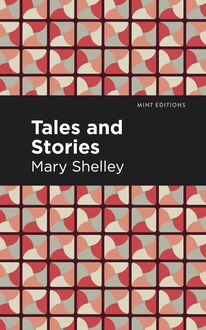
Ebooks
Tales and Stories
Mary Shelley


Ebooks
Heart of the West
O. Henry

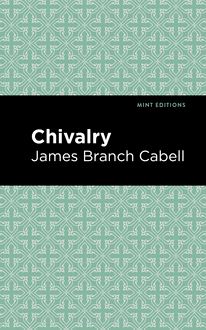
Ebooks
Chivalry
James Branch Cabell


Ebooks
The Clicking of Cuthbert
P. G. WODEHOUSE

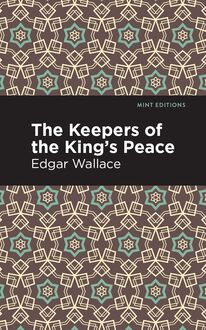
Ebooks
The Keepers of the King's Peace
Edgar Wallace

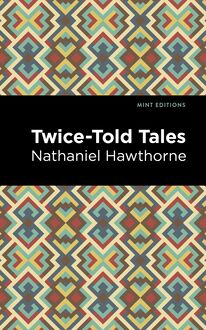
Ebooks
Twice Told Tales
Nathaniel Hawthorne

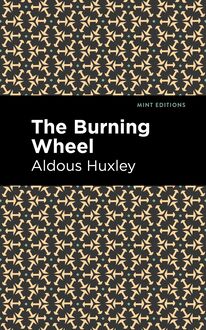
Ebooks
The Burning Wheel
Aldous Huxley

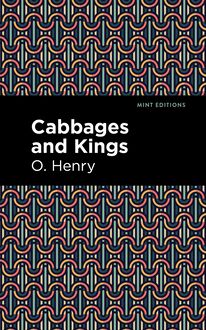
Ebooks
Cabbages and Kings
O. Henry

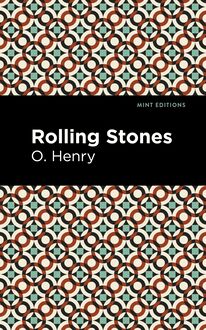
Ebooks
The Rolling Stones
O. Henry

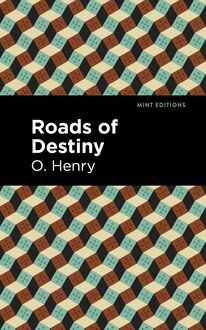
Ebooks
Roads of Destiny
O. Henry


Ebooks
The Prussian Officer and Other Stories
D. H. LAWRENCE

Ebooks
Romans et nouvelles
The Prussian Officer and Other Stories
D. H. LAWRENCE
123 pages
English
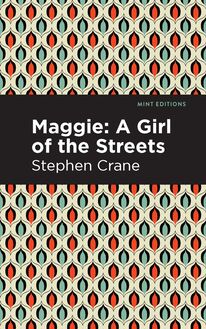
Ebooks
Maggie
Stephen Crane

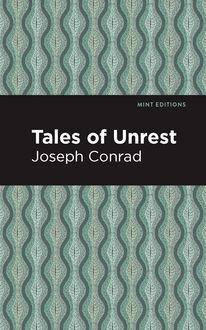
Ebooks
Tales of Unrest
Joseph Conrad

-
 Univers
Univers
-
 Ebooks
Ebooks
-
 Livres audio
Livres audio
-
 Presse
Presse
-
 Podcasts
Podcasts
-
 BD
BD
-
 Documents
Documents
-
Jeunesse
-
Littérature
-
Ressources professionnelles
-
Santé et bien-être
-
Savoirs
-
Education
-
Loisirs et hobbies
-
Art, musique et cinéma
-
Actualité et débat de société
-
Jeunesse
-
Littérature
-
Ressources professionnelles
-
Santé et bien-être
-
Savoirs
-
Education
-
Loisirs et hobbies
-
Art, musique et cinéma
-
Actualité et débat de société
-
Actualités
-
Lifestyle
-
Presse jeunesse
-
Presse professionnelle
-
Pratique
-
Presse sportive
-
Presse internationale
-
Culture & Médias
-
Action et Aventures
-
Science-fiction et Fantasy
-
Société
-
Jeunesse
-
Littérature
-
Ressources professionnelles
-
Santé et bien-être
-
Savoirs
-
Education
-
Loisirs et hobbies
-
Art, musique et cinéma
-
Actualité et débat de société
- Cours
- Révisions
- Ressources pédagogiques
- Sciences de l’éducation
- Manuels scolaires
- Langues
- Travaux de classe
- Annales de BEP
- Etudes supérieures
- Maternelle et primaire
- Fiches de lecture
- Orientation scolaire
- Méthodologie
- Corrigés de devoir
- Annales d’examens et concours
- Annales du bac
- Annales du brevet
- Rapports de stage





